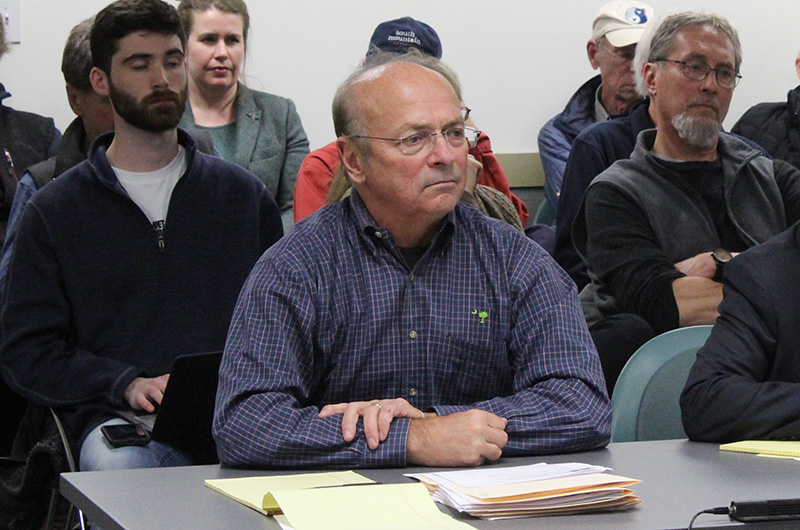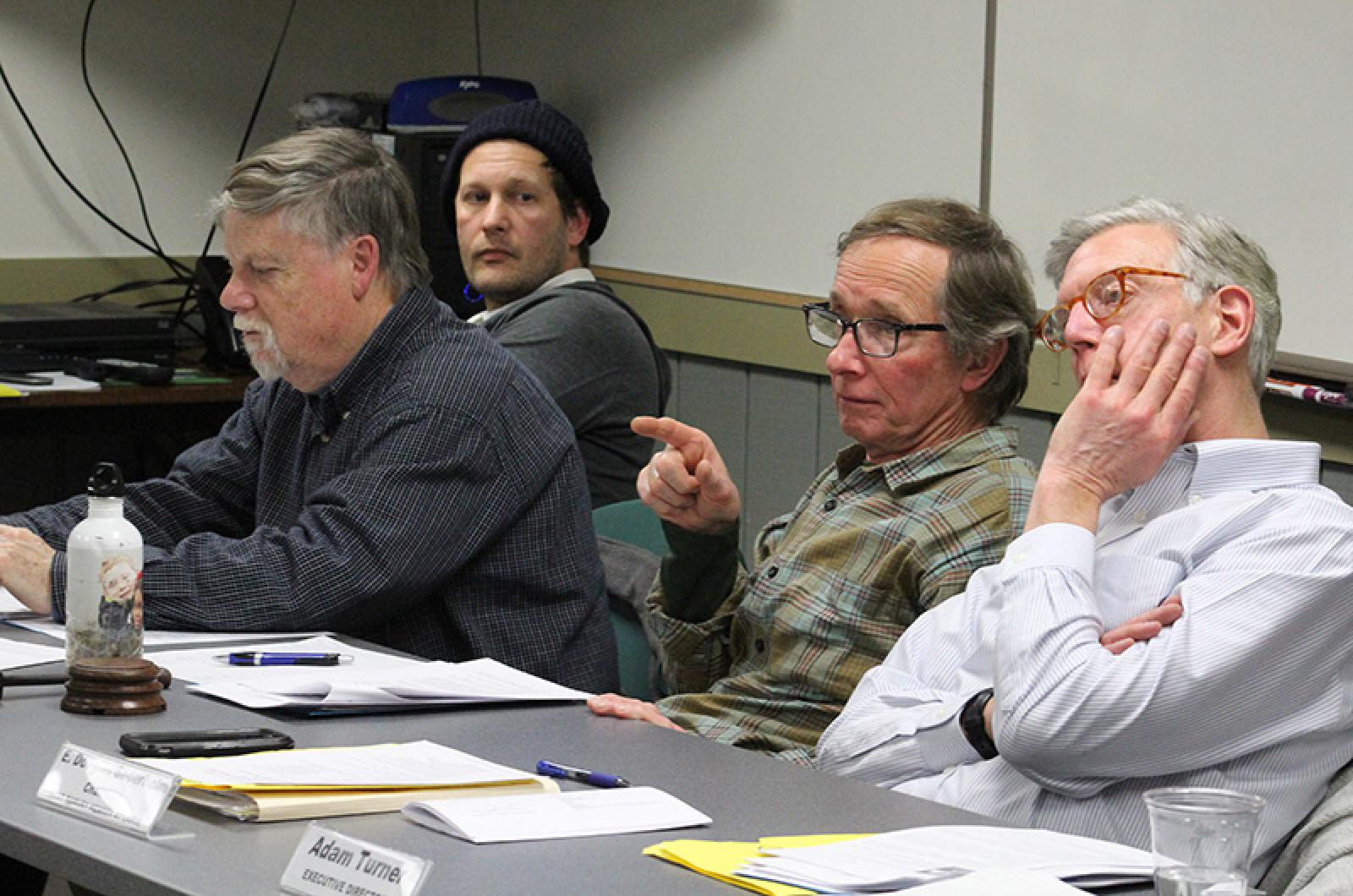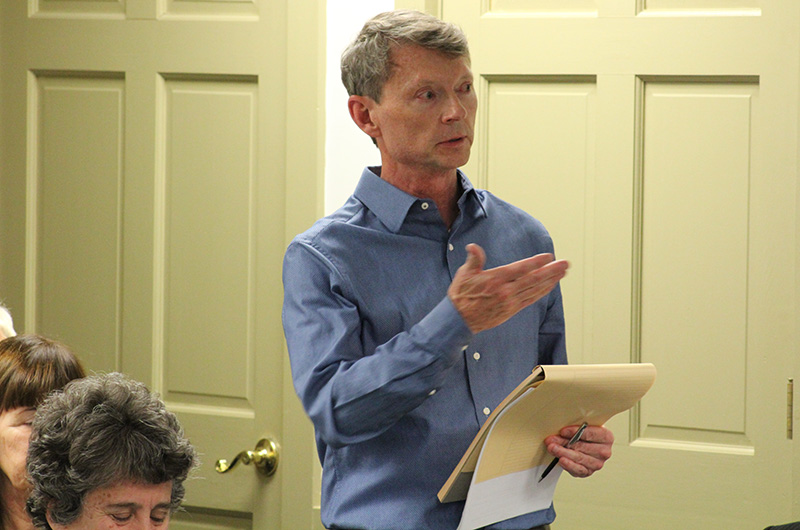The broad powers of the Martha’s Vineyard Commission and the character of the Island will be on trial in Dukes County superior court next month, nearly two years after the regional planning agency voted 10-4 to deny a proposed subdivision in Edgartown known as Meeting House Place.
Finding the project’s detriments outweighed its benefits, the commission decision in July 2020 ended a lengthy review during which the plan — the largest proposed development on the Island in decades — underwent several revisions.
Salt Lake City, Utah-based developers Douglas K. Anderson and Richard G. Matthews appealed the decision in superior court in September 2020, claiming the denial was arbitrary and alleging that the commission exceeded its legal authority and in some cases its own guidelines in turning it down.
With the case scheduled to go to trial June 21, Boston trial attorney and Edgartown resident Edward (Terry) Dangel, representing the developers, has already filed hundreds of pages of expert testimony and lined up witnesses, including architect Patrick Ahearn and former MVC commissioner James Joyce, an Edgartown real estate broker, to challenge the decision from multiple angles. The commission’s planned witnesses include John Abrams, founder of South Mountain Co., and real estate broker Candace daRosa.
Both parties agreed to have the case heard without a jury by the Hon. Paul D. Wilson, an associate justice of the superior court who normally sits in Boston. The commission is represented by Joanna Schneider, a partner in the Boston law firm of Hemenway & Barnes. A joint pretrial memorandum suggests that the trial could last five days.
The lawsuit is the first major court challenge in decades to the commission’s broad authority to regulate development on the Island, and testimony at trial is expected to test the limits of its discretion. Created in 1974 by a special act of the legislature, the first-of-its kind 21-member commission was handed a sweeping mandate: “(T)o protect the health, safety and general welfare of Island residents and visitors by preserving and conserving for the enjoyment of present and future generations the unique natural, historical, ecological, scientific and cultural values of Martha’s Vineyard which contribute to public enjoyment, inspiration and scientific study by protecting these values from development and uses which would impair them, and by promoting the enhancement of sound local economies.”
Over the years, the commission has developed procedures and criteria, including public hearings and written testimony, for reviewing developments of regional impact (DRIs), of which the Meeting House Way project was one.
The project came before the commission in 2018, a year after Mr. Anderson and Mr. Matthews, doing business as Meeting House Way LLC, bought five lots totalling 54.26 acres between Meeting House Way and Meshacket road in Edgartown for $6.6 million.
Originally, the developers hoped to build 36 market rate homes on the property, but the plan was revised several times during its two-year review by the commission.
The final version called for 28 single family homes with up to 4,200 square feet of living area on lots between a half-acre and an acre in size, and a cluster of 14 below-market-rate townhomes of between 800 and 1,100 square feet on a 29th 1.4-acre lot. Developers agreed to protect 21.9 acres of the 25.2 acres identified by state scientists as priority habitat for the imperial moth. An additional 9.2 acres of open space would have been held in common by a homeowners’ association.
The developers also offered to make a $1.1 million contribution to the Edgartown affordable housing committee, plus an additional $220,000 on the future sale of lots.

In its written decision denying the project, the commission said that while the project satisfied “in some form” many of the MVC’s guidelines, “it did not provide sufficient benefits to outweigh the overwhelming detriment to the rural, natural character of the area, and the Vineyard as a whole.”
The commission identified a variety of negative impacts to the environment and new burdens on the Island infrastructure, but the focus of its denial, both in comments made by commissioners and in its written decision, was on its overall lack of appropriateness for the Island.
“In sum,” the decision reads, “the commission finds that the development would commit significant acreage toward luxury homes in a suburban setting, which would not be a prudent use of the Island’s dwindling supply of remaining developable land.”
In court filings, the developers claim the decision by the commission was arbitrary and capricious, offering expert testimony to dispute various conclusions cited by the commission.
In a written opinion, for example, Slater W. Anderson, managing director of real estate for LandVest, stated that homes of about 3,800 square feet are common and desirable in the area, and that the MVC’s staff analysis did not accurately reflect recent market trends and buyer preferences.
City planner Roberta Cameron offered an analysis to show that the proposed development would generate substantially more tax revenue than it would cost in municipal services.
And environmental scientist Andrew Glucksman concluded that the project would not have a detrimental effect on open space and the environment relative to other development alternatives.
But court documents filed by both parties suggest that the question of whether the project is appropriate to the character of the Island will loom large over the trial.
In a pretrial motion, attorneys for the developer sought to exclude testimony from the commission’s witness, Mr. Abrams, that said the project did not fit with the Island character, noting that their own witness, Mr. Ahearn, had indicated that there is no single Island character.
A separate pretrial motion, filed by attorneys for the commission, sought to exclude testimony that purported to show that the commission had a bias against people from off-Island.
Following a hearing, Judge Wilson denied both motions.








Comments (28)
Comments
Comment policy »